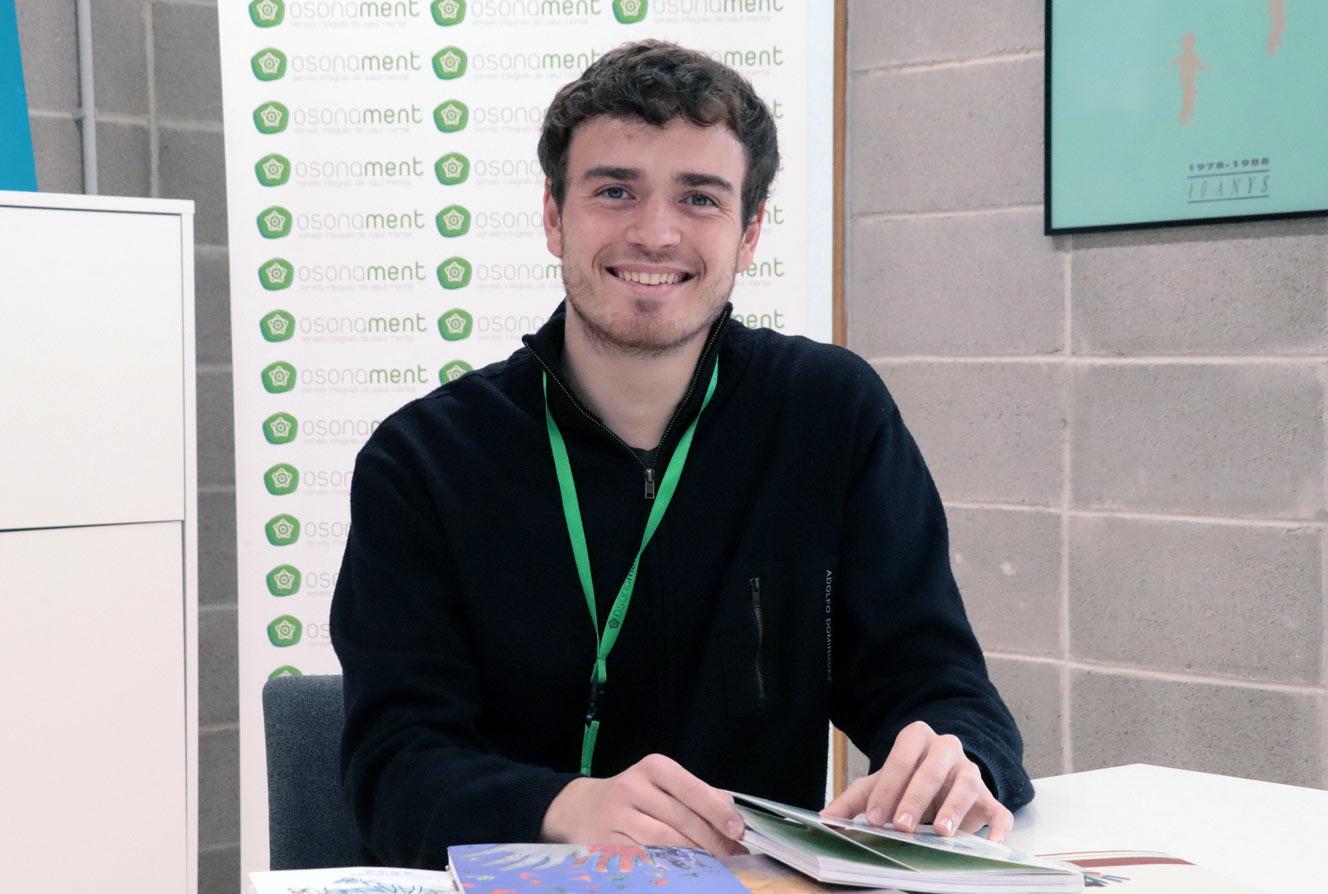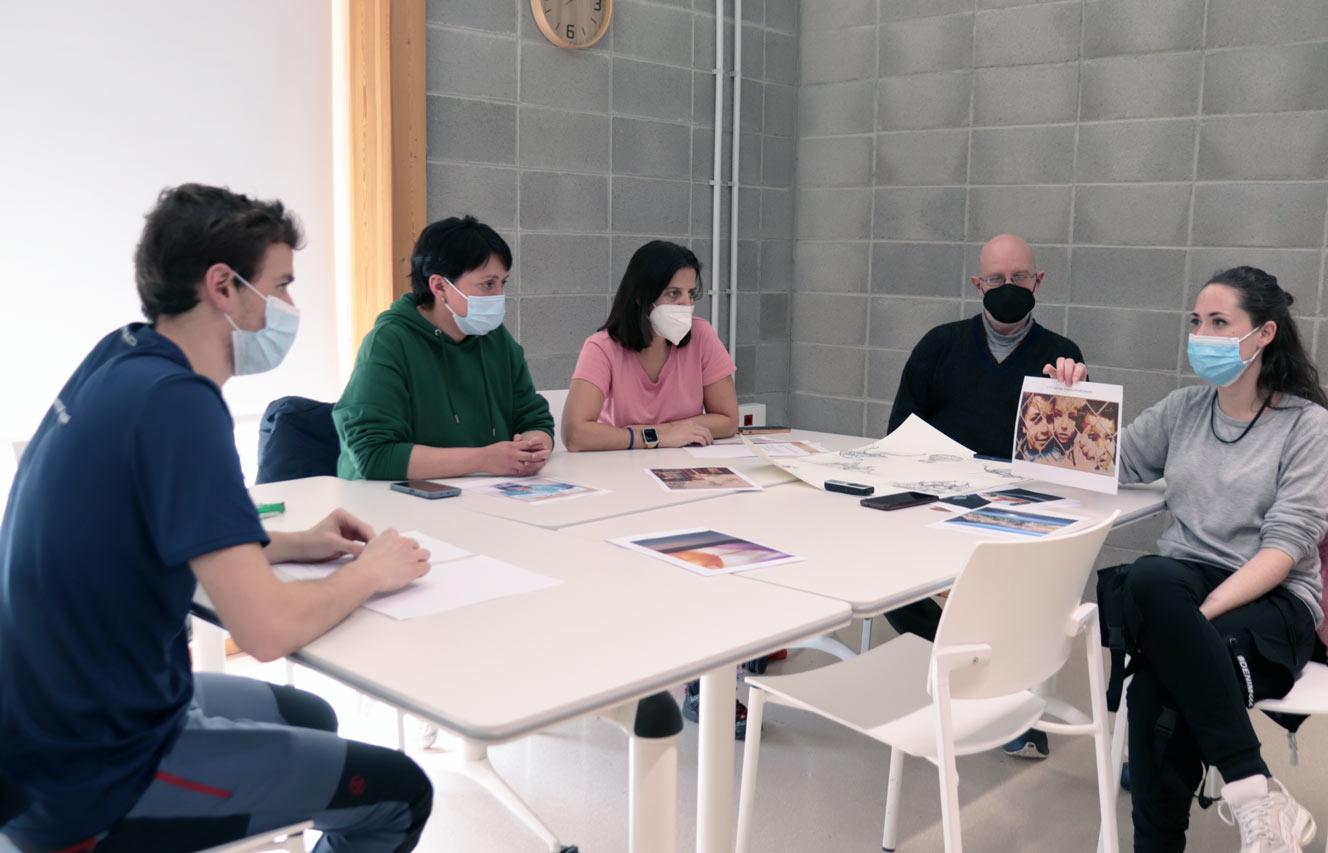
Segons diversos estudis difosos a mitjans, la salut mental és un tema que preocupa molt a la ciutadania. El ritme de vida, problemàtiques socials, econòmiques i polítiques generen molts problemes que afecten la salut mental de les persones. La recerca sobre els beneficis de les activitats artístiques en la salut mental és un camp que està guanyant cada vegada més atenció en la comunitat científica. Segons estudis realitzats per diferents institucions, com ara l’Organització Mundial de la Salut, les activitats artístiques poden ajudar a millorar la salut mental i emocional, així com afavorir la integració social i la millora de la qualitat de vida de les persones que les practiquen.
Davant d’aquesta situació, en els darrers anys han aparegut diverses iniciatives que busquen ajudar a les persones amb problemes de salut mental a través de diferents activitats, entre les quals destaca l’art. En aquest sentit, la recerca sobre l’impacte de l’art i la cultura en el benestar psicològic i la participació social de les persones amb problemes de salut mental és una iniciativa que busca aprofundir en aquesta qüestió.
Una d’aquestes iniciatives la lidera Osonament, una entitat sense ànim de lucre que té com a missió millorar la qualitat de vida de les persones amb problemes de salut mental i addiccions a la comarca d’Osona, amb una àmplia experiència en el Pla de Doctorats Industrials amb 5 projectes de recerca aplicada i col·laborativa des de 2015.
L’entitat va posar en marxa durant el 2006 el projecte “Parelles Artístiques”, un bon exemple de com l’art pot ser una eina molt útil per ajudar a les persones amb problemes de salut mental. En aquests quinze anys de desplegament del projecte, ha ajudat a moltes persones a millorar el seu benestar psicològic i la seva participació social. Breument, la iniciativa consisteix en la creació i l’exposició posterior d’unes obres realitzades per parelles artístiques formades per un artista vinculat a recursos de salut mental i per un artista de la comunitat. Aquests artistes vinculats són persones que utilitzen el Servei de Rehabilitació Comunitària en salut mental, la majoria dels quals tenen un diagnòstic que respon a un trastorn mental sever (TMS), de més o menys anys d’evolució.

Si entenem que un problema de salut mental és un conjunt d’afeccions en l’àmbit emocional i sentimental que la persona experimenta en algun moment de la seva vida, el projecte afirma que l’art és una de les eines que permet a la persona poder exterioritzar els dubtes, experiències i successos de forma creativa, i per tant expressar de forma lliure les emocions i sentiments, sense judicis ni valoracions. Amb aquest projecte, les persones amb problemes de salut mental poden treballar en un projecte creatiu conjuntament amb altres persones que comparteixen el mateix interès artístic, el que els permet expressar-se en un llenguatge que no és la paraula i propiciar el benestar psicològic. El procés creatiu i personal que viuen els integrants de cada parella té un paper fonamental en aquest projecte, per sobre del resultat final de les obres, malgrat que aquestes també es valoren a través del catàleg i de les exposicions itinerants que s’organitzen, i de la posterior seva venda final.
Amb l’objectiu d’avaluar l’impacte del projecte “Parelles Artístiques” a diferents nivells, Osonament va iniciar el 2022 un projecte de Doctorats Industrial. Quins beneficis aporta l’art a la salut mental? I, més concretament, quins beneficis aporta el projecte “Parelles Artístiques” als seus participants?, són les preguntes en les quals es fonamenta la recerca que porta a terme el doctorand Jaume Cases. El projecte de l’entitat es porta a terme en col·laboració amb la Universitat de Vic – Universitat Central de Catalunya (UVic-UCC), de la mà del Dr. Salvador Simó del Grup de Recerca ISaMBeS (Innovació en Salut Mental i Benestar Social) de la mateixa universitat i el Dr. Ruben del Rio com a tutor del projecte a Osonament.
En definitiva, el projecte vol conèixer els beneficis que aporten les activitats artístiques a les persones que passen per una recuperació d’una problemàtica en salut mental, i consolidar aquestes intervencions com a prescripcions socials dins el model sociosanitari. A més, poder reconèixer l’art col·laboratiu com una eina capaç de generar vincles socials satisfactoris, espais de cocreació i d’aprenentatge mutu.
En termes d’impacte social, la utilització de l’art com a eina terapèutica pot estimular els llaços entre la societat i la cultura i l’art, i promoure la inclusió social i el benestar emocional. Això pot ser especialment important per a aquelles persones que han patit problemes de salut mental i que poden sentir-se apartades de la societat. A través de l’art, es pot promoure la creació de comunitats més inclusives i cohesionades.

Jaume Cases, doctorand del projecte, ens explica que “el repte més gran que tenim és el de treballar i consolidar la salut emocional com un tema prioritari per prevenir i mantenir una salut mental estable”. La recerca identifica l’art com una eina molt útil per aconseguir que les persones siguin capaces de detectar i expressar les diferents emocions i sentiments que tinguin, sense haver de restringir-les o amagar-les. També comenta que l’art és una bona eina terapèutica d’expressió que permet a la persona exterioritzar aquestes emocions i a través de qualsevol disciplina artística: poesia, música, pintura, dibuix, etc.
A mitjà termini el projecte pretén consolidar les intervencions “art-comunitàries” en el programa transversal de l’àrea de rehabilitació comunitària, i fer una extensió de les pràctiques artístiques per la comunitat i les institucions de salut mental: “esperem generar uns resultats que ens avalin els beneficis de l’art en persones amb problemàtiques de salut mental en aspectes com la participació social, el benestar psicològic, la recuperació, l’estigma i autoestigma en salut mental, l’autoeficàcia creativa, entre d’altres”, comenta Cases.
En conclusió, és evident l’impacte de l’art i la cultura en el benestar psicològic i la participació social de les persones amb problemes de salut mental. L’art i la cultura poden proporcionar un entorn segur i de suport perquè les persones s’expressin de manera creativa, promoguin les connexions socials i desafiïn l’estigma i la discriminació. Com a tal, projectes com aquest són importants per continuar promovent i donant suport a l’accés a activitats artístiques i culturals per a persones amb problemes de salut mental.

